When thinking of compost vs mulch, you should probably consider organic compost plus organic mulch. Organic matter combined in the right quantities improves your garden’s soil, making it rich and fertile.
While you can use some compost for mulching, you should never use mulch as compost. You add your compost into the ground when tilling the soil. The compost adds to the richness of the soil as the compost materials break down and get absorbed by the soil.
Mulch, on the other hand, lies on top of the soil. You spread mulch around the plants to add protection to the topsoil, keep it moist and prevent weeds.
Which is Better for Your Vegetable Garden?
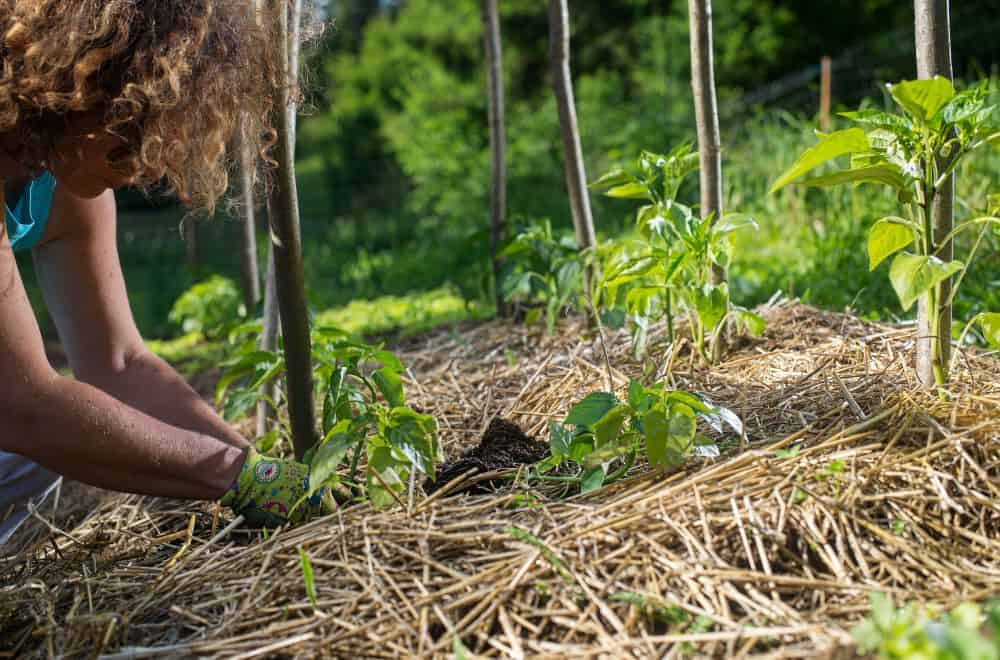
The best way to use compost and mulch in a vegetable garden is to use them together. Add compost to the soil when you till and prepare the soil, and top it with mulch after you plant.
Depending on the richness of your soil, using either one will enhance your garden. However, since compost and mulch complement each other, when used together and used properly, you will get the best results from your garden.
Compost vs Mulch: What Is Compost?
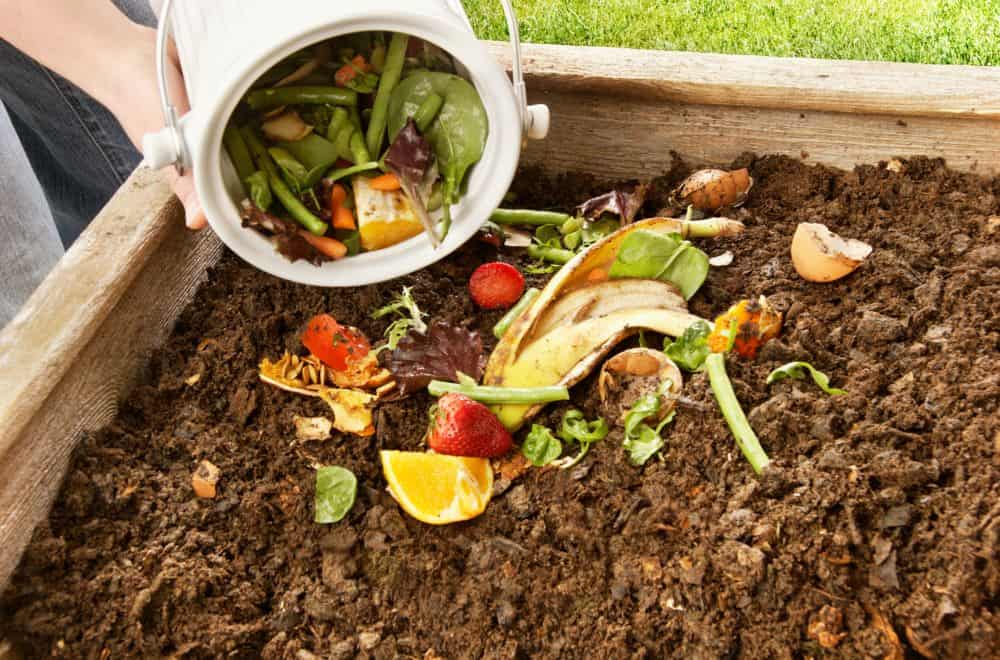
Compost is the culmination of organic materials that are decomposed. If you make your own compost, it takes about a year for all of the organic matter to break down enough to kill any pathogens and make it safe to use in a garden as an organic fertilizer.
If you do not live in an area where it is feasible to do your own composting, you can buy bags of compost instead.
Almost anything can be used to make compost, including food leftovers, fruit and vegetable peels, and even napkins, paper towels and other paper products that you would normally just throw away.
Some of the more common materials used in composting are:
- Coffee grounds
- Eggshells
- Fruit Peels
- Banana peels
- Meat scraps
- Tea bags
- Grass clippings
- Onion Peels
- Leaves
- Newspaper
- Pine needles
- And much more.
Compost vs Mulch: What Is Mulch?
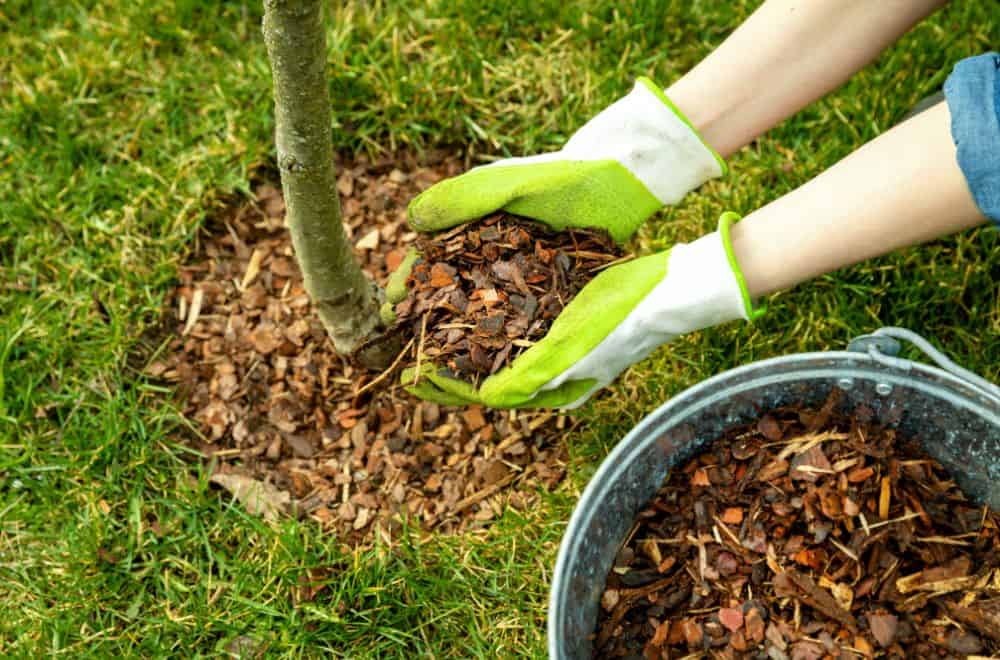
Many gardeners use mulch on the topsoil around the plants. Mulching your vegetable garden acts as insulation for the topsoil, keeping the soil moisture consistent and limiting the growth of weeds.
Since mulch keeps the soil moist, you will not need to water your plants as often. If your home connects to public water and sewer, this will have a positive impact on your water usage and lower your bills.
If you live in a naturally dry area without much rain, mulch will protect your garden by making sure the plants retain that water and stay moist longer, even in dry and hot climates.
As mulch naturally degrades over time, the soil absorbs the nutrients and adds to the richness of the garden.
Inorganic vs. Organic Mulch
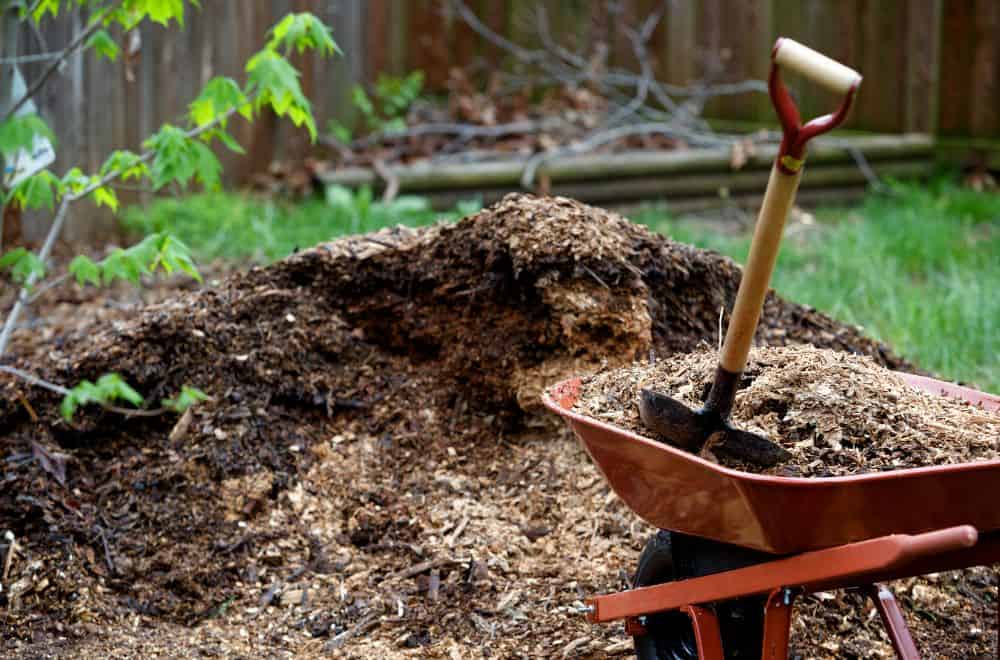
There are two types of mulch: organic and inorganic. For vegetable gardens, organic mulch is the best, as it will degrade over time. As it degrades, the soil absorbs the nutrients in the mulch and adds to the richness of the garden.
Inorganic Mulch
You typically use inorganic mulch for aesthetic purposes like bordering walkways or adding in between shrubs and other plants. Inorganic mulch is usually pebbles, gravel and stone.
Since these materials do not break down over time, they are perfect for eye-appealing and low maintenance landscaping projects, but not very useful for vegetable gardens since they provide no nutrients for the soil or the plants.
Organic Mulch
Organic mulch is the best choice for vegetable gardens. Some of the more common materials used for making organic mulch are:
- Wood chips
- Straw – as in hay
- Grass clippings
- Dried tree leaves
- Manure
If you mow your lawn and use a bagger, you can empty the grass clippings into your garden and spread it around the topsoil as mulch for added insulation and protection.
If you vacuum dead and dry leaves in the fall, instead of throwing them away, you can save them and use them as mulch for your garden.
Since you can use compost as mulch, you can save some money by doing your own organic composting. In fact, if you mulch with organic compost, it helps keep the soil moist, especially during the summer or if you live in a naturally hot area. Keeping your plants moist helps to prevent plant stress and wilting and you will produce a healthier crop.
Using Compost for Soil Fertilizer and Mulch
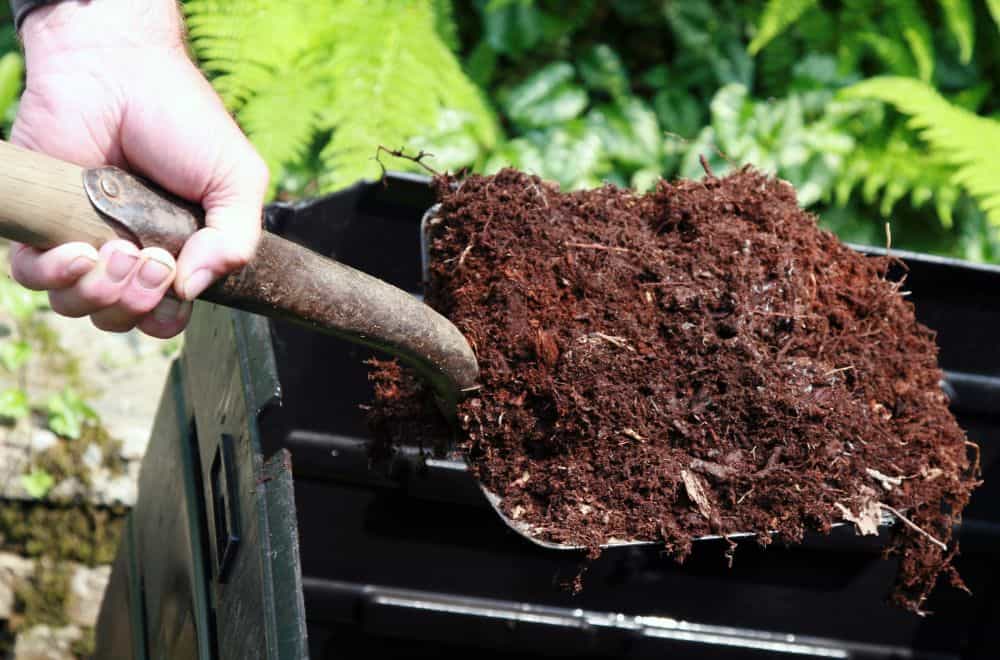
If you are able to do your composting, you can save a good bit of money by doing this yourself. It’s not only better for your garden, it’s better for the environment and produces less waste.
If you live on a farm or in an open area with no neighbors, you simply create a pile where you’ll toss your food leftovers and scraps, grass clippings, even manure piles your pets leave for you to pick up.
You can also do your own composting even if you live in a suburban or city environment. You can purchase composting bins with a lid that will allow you to keep the odor to a minimum so as not to annoy your neighbors.
Add some meal, flax seed, and lime periodically to the materials and keep the pile aerated, and you can make enriched organic compost for use as both soil fertilizer and mulch.
If you are short on time and money but you still want to use organic compost and mulch in your garden, your local waste collection department may be worth contacting.
Local Yard Waste Centers
If you live in a city that picks up your trash, you can contact them to see if they also collect yard waste, which consists of organic biodegradable materials such as raked leaves, leafy plants, small twigs and sticks, and hedge trimmings. They may also collect Christmas trees after the holiday season.
Yard waste centers compost these biodegradable materials to distribute to city and county parks and government buildings for landscaping mulch. However, you may be able to purchase mulch from these centers at a much lower cost than buying bags at a retail store.
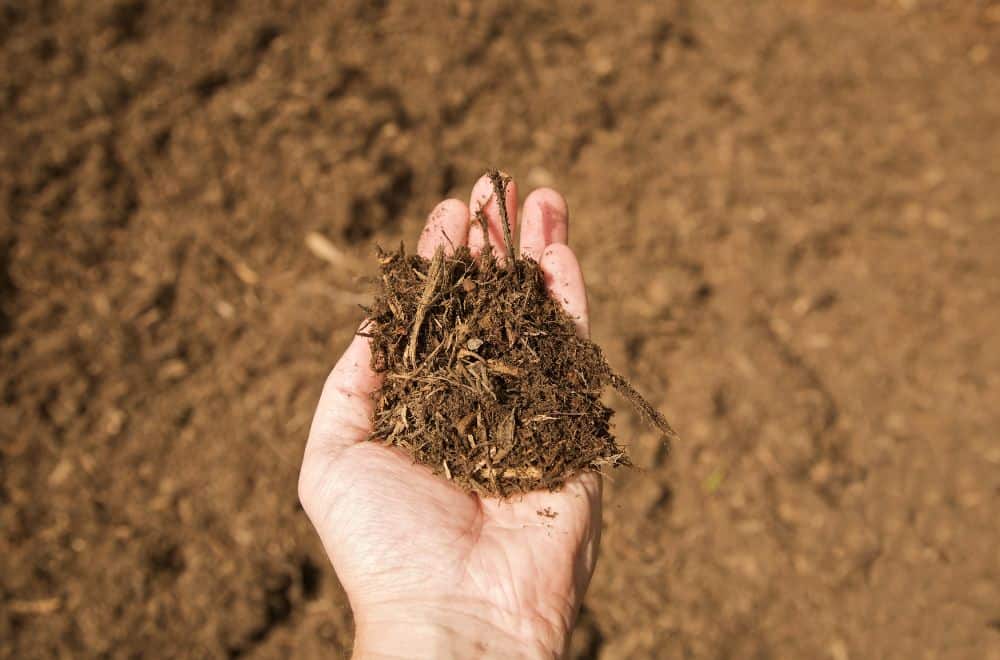
Leave a comment